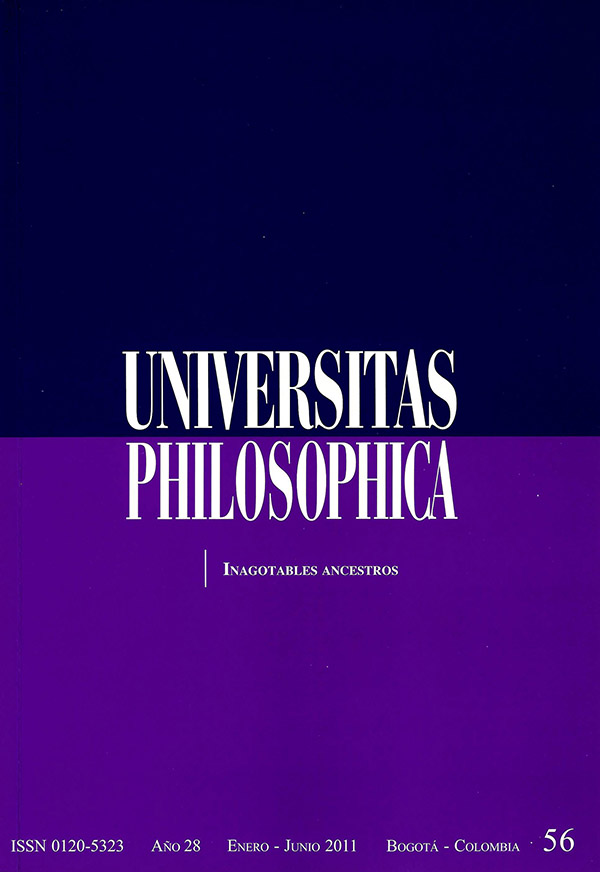Resumo
Aún es oculto para nosotros el pensamiento de Plotino. La complejidad de sus ideas acrecienta el abismo que nos separa de la comprensión de sus textos. Sí, es cierto, en Plotino encontramos el primer gran sistema filosófico, lo cual garantiza la visibilización ordenada de todos los elementos que constituyen su pensamiento; pero, es allí mismo donde se revela la oscuridad con que dichos elementos interactúan. Este sistema está compuesto por dos órdenes de cuestiones: metafísica y ética, que actúan como dos caras de una misma moneda ¿Cómo trazar los límites entre estos dos universos? ¿Es posible hacerlo? En el presente artículo pretendo dar solución a estas cuestiones examinando los conceptos de contemplación (theôría) y éxtasis.
Esta revista científica se encuentra registrada bajo la licencia Creative Commons Reconocimiento 4.0 Internacional. Por lo tanto, esta obra se puede reproducir, distribuir y comunicar públicamente en formato digital, siempre que se reconozca el nombre de los autores y a la Pontificia Universidad Javeriana. Se permite citar, adaptar, transformar, autoarchivar, republicar y crear a partir del material, para cualquier finalidad (incluso comercial), siempre que se reconozca adecuadamente la autoría, se proporcione un enlace a la obra original y se indique si se han realizado cambios. La Pontificia Universidad Javeriana no retiene los derechos sobre las obras publicadas y los contenidos son responsabilidad exclusiva de los autores, quienes conservan sus derechos morales, intelectuales, de privacidad y publicidad.
El aval sobre la intervención de la obra (revisión, corrección de estilo, traducción, diagramación) y su posterior divulgación se otorga mediante una licencia de uso y no a través de una cesión de derechos, lo que representa que la revista y la Pontificia Universidad Javeriana se eximen de cualquier responsabilidad que se pueda derivar de una mala práctica ética por parte de los autores. En consecuencia de la protección brindada por la licencia de uso, la revista no se encuentra en la obligación de publicar retractaciones o modificar la información ya publicada, a no ser que la errata surja del proceso de gestión editorial. La publicación de contenidos en esta revista no representa regalías para los contribuyentes.


